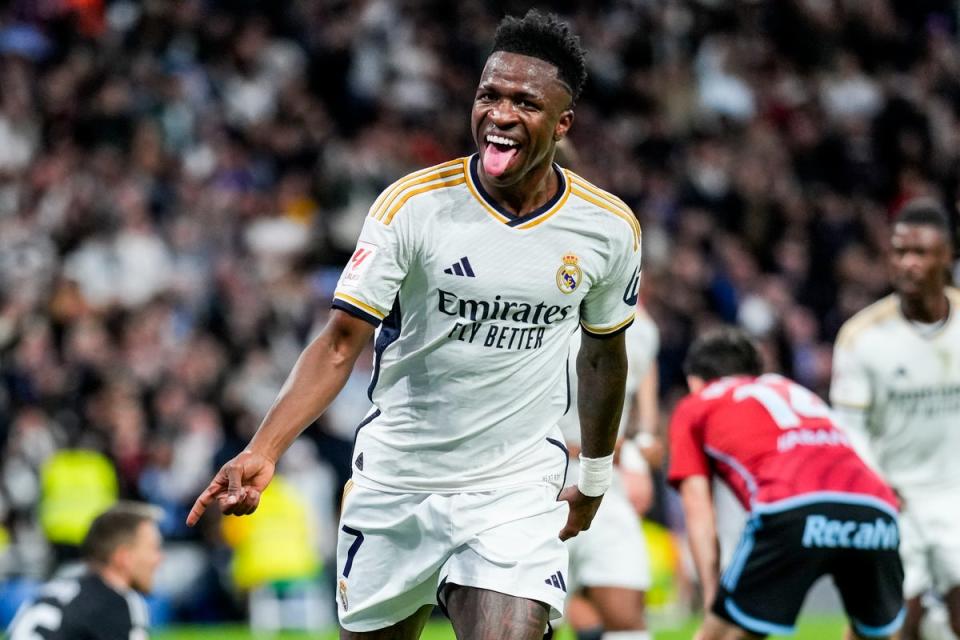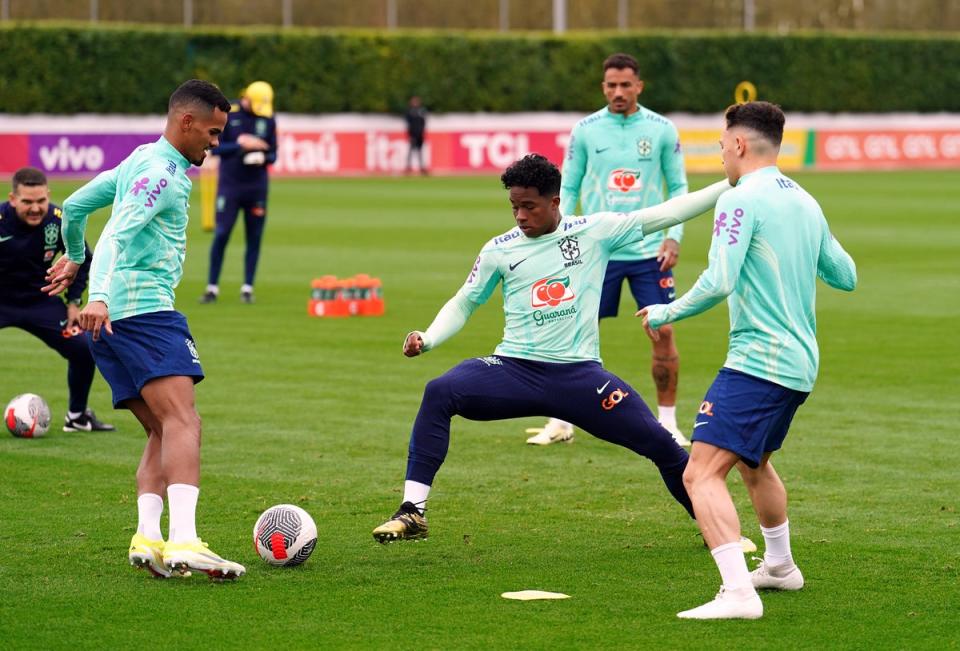For any Brazilian teenager who breaks into the first team of a big club such as Corinthians, Sao Paulo, Flamengo or Fluminense, there is a good chance they have earned a lucrative ticket to European football. The five most expensive transfers in Brazil this season were all players sold to one of Europe’s biggest clubs (and Crystal Palace). His average fee was £20 million, according to Transfermarkt. Their average age was only 19 years old.
Brazil has always been a fertile ground for nurturing talent, but when it comes to top young players, its export industry is busier than ever, especially on the Premier League route. Over the past few years, the number of Brazilians playing in England’s top league has increased from just 12 in 2018 to 33 last season.
Some of these come directly from Brazil, some from other European clubs, but almost all of them have one thing in common: he leaves the Brazilian as a young player with potential rather than a finished product.
European agents settled in South America to facilitate the explosion. There was a gap in the market for providing 360-degree support beyond just handling contract negotiations, from career development advice to how to use social media. Five of Brazil’s squad to face England on Saturday night have signed for Roc Nation, an agency that has Vinicius Jr. on its books and is behind Endrick, the next superstar talent, and the 17-year-old’s move to join Vinicius at Real . We are in Madrid this summer. If Arsenal’s Gabriel Martinelli had not been injured, there would have been six Roc players in the Brazil squad.


“I don’t think the flow of talent from Brazil to Europe is really increasing,” says Fred Pena, president of Roc Nation’s Brazil initiative. “Brazilian talent has been in style for over thirty years. The profile of players transferred to Europe has changed. Mostly, you see young talents, aged 20 or 21 at most, making their way to Europe’s big five leagues.
“Players aged 22 and over generally go to the so-called ‘alternative’ markets such as Middle Eastern countries (i.e. Saudi Arabia, Emirates and Qatar) or ‘alternative’ markets such as Turkey, Russia, Ukraine, Asian countries, Mexico and MLS. The latter also recruits young talent, but not the best talent. “The best young talent will go to the big five and the Premier League will by far be the primary target.”
The possibility of lifting the whole family out of poverty is an absolute priority
Fred Pena
Following Brexit, English clubs found themselves shackled by new Board Approval (GBE) rules that foreign transfers had to pass. The criteria were stringent and threatened to stifle clubs’ ability to purchase rough diamonds and untapped potential abroad. But a new rule last summer relaxed those rules and freed up the market for clubs, especially those lower on the food chain that source lesser-known talent.
“The FA has given clubs the right to sign at least two wildcard players from anywhere in the world,” explains Alan Redmond, vice president of Roc Nation Sports International. “This means that players who were previously unable to meet work permit requirements can now move. This will be really beneficial for our business in Brazil and will also allow all clubs to truly scout globally. The previous system perhaps favored the richest clubs.” ”


Brazilian football itself is going through a process of evolution and there is a desire to re-energize its domestic league. A 2021 law encouraged private investment in clubs, and since then the Brazilian Serie A has seen a number of new ownership examples: Manchester City’s Abu Dhabi owners bought Esporte Clube Bahia in Salvador; US-based 777 Partners, which is trying to add Everton to its portfolio, purchased Vasco da Gama in Rio; US technology entrepreneur John Textor acquired Botafogo; Ronaldo, one of Brazil’s greatest players, bought Cruzeiro, the first club he played for.
The scope of growth in Brazilian football is clear. While the Premier League generates 50 percent of its broadcast revenue from abroad, only 2 percent of the Brazilian league’s TV revenue currently comes from international markets. If he can sell the product to foreign audiences, there is significant untapped potential.
This shouldn’t be difficult since the product itself is attractive. Brazil has historic clubs, packed stadiums, fierce rivalries, talented home-grown players and no shortage of talent and fun on the pitch. But organizationally, Brazilian football can at times resemble a basket case: there is a political divide between the top clubs that prevents the kind of unity that brought the English Premier League to life in the early 1990s, and the league is tainted by a number of negativities. History of corruption and scandals. Just last season, Botafogo’s new owner Textor accused the match officials of cheating after Palmeiras’ 4-3 defeat. “This championship has become a joke,” fumed the full-timer. “This is fucking corruption.”


In some ways, the league is its own worst enemy. It has the potential to turn Brazil’s Serie A into a thriving product in its own right and complement its lucrative business of selling homegrown talent. But establishing the league requires the unity and vision that is currently lacking at the top of Brazilian football. Selling assets is a way for many big clubs to pay off their debts and remains the fastest and most effective way to make a living.
And for players, the appeal of Europe’s elite is stronger than ever. Not only is this a potential path to the top of the game, it also means access to life-changing wealth that is incomparable to the amounts they earned in South America.
“Let’s not forget that most young athletes in Brazil come from poor families,” Pena adds. “They love football and are certainly fans of local clubs, but the possibility of lifting their entire family out of poverty is an absolute priority. That’s why Brazilian talents will go to any part of the world that makes them big money: Russia, Ukraine, China, Saudi Arabia, Qatar, Mexico…
“For me, it is normal today for a Brazilian young player to be interested in competing in the Premier League or the Champions League rather than the Brazilian Serie A or the Copa Libertadores. They want to compete with the best to then be recognized as the best.